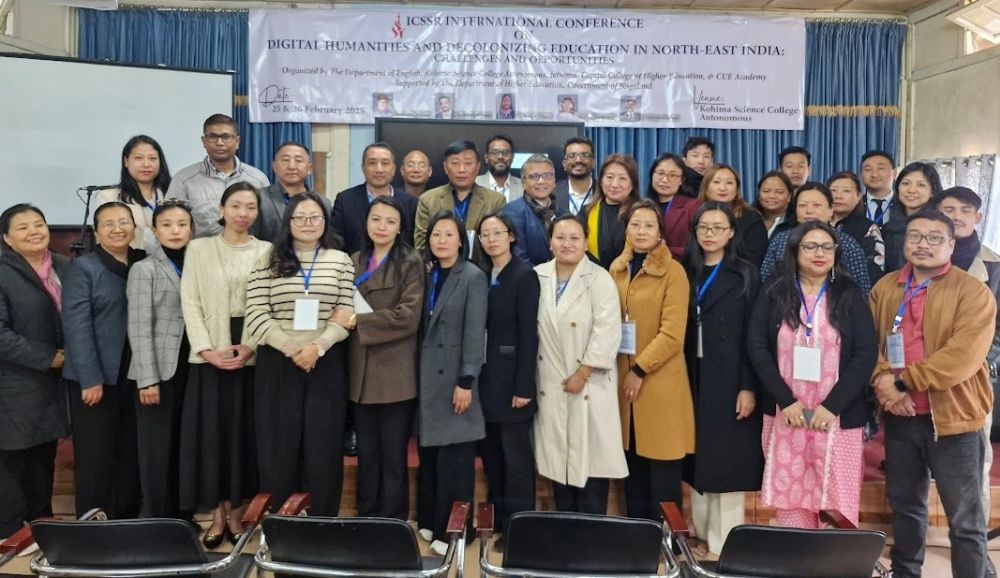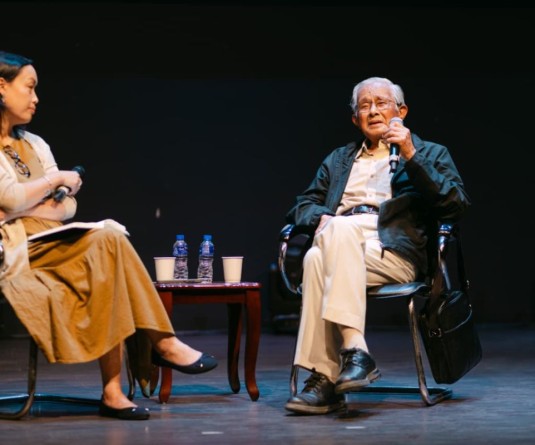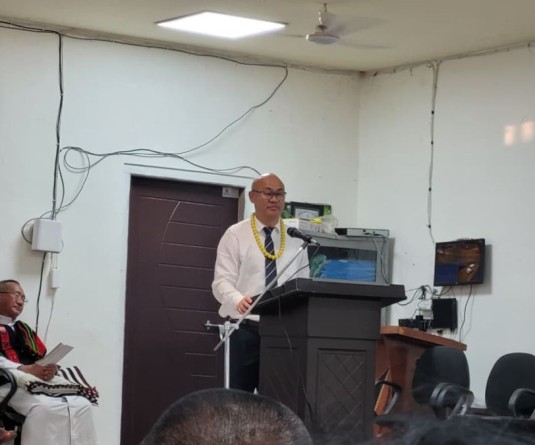Speakers and other dignitaries during ICSSR International Conference on February 25. (Morung Photo)

Our Correspondent
Kohima | February 25
The ICSSR sponsored International Conference on “Digital humanities and decolonizing education in North East India: Challenges and Opportunities” under the aegis of the Department of English, Kohima Science College Jotsoma in collaboration with Capital College of Higher Education & CUE Academy and Centre for Person Centered Education, Kohima took place at Kohima Science College campus, Jotsoma, near Kohima on February 25.
This conference, supported by Department of Higher Education, Government of Nagaland, seeks to explore the intersection of digital humanities and decolonization of education, addressing key challenges and emerging opportunities in academia, research and pedagogy.
Scholars, researchers and educators from diverse fields will engage in critical discussions on the transformative role of technology in shaping inclusive and decolonized knowledge systems.
The inaugural session was chaired by Dr Seyiekhrielie Whiso, Co- convener & Associate Professor, Department of English, Kohima Science College while welcome address was delivered by Dr Temjenwabang Lkr, Principal, Kohima Science College. Greeting was shared by Medongoi Rhakho, Deputy Director, Higher Education, Govt of Nagaland. Vote of thanks of thanks was proposed by Dr Zokho Venuh, principal, Capital College of Higher Education, Kohima.
In keynote address, Dr Charles Redmon, Assistant Professor, University of Essex stated “We are now just three years into a new boom in Artificial Intelligence (AI) research, investment and integration into an increasingly broad range of applications in our daily lives, from smart devices that can listen and respond to our questions and commands, to software that can generate naturalistic text that can be used to summarise vast arrays of content, generate reports and emails, and yes, cheat on classroom assignment.”
And yet, he stated, while many are touting these new changes as revolutionary, the presumption behind the increasing shift to more conversational computing interfaces is that the language of interaction is relevant. “This technology is not often explicitly stated because most companies developing this technology live and operate in English, the language of greatest ubiquity on the internet and in published international discourse,” Dr Redmon stated.
Stating that not everyone speaks English, and even for those who do, the majority do not speak the standard dialects that most models rely upon, he asked practically what all such means for the Northeast.
“What are the current technologies that are available or are in development, and what are the linguistic needs of the region? And for technologies that remain to be developed (which includes nearly all aspects of AI for nearly all languages) what technical barriers remain and how can we overcome them?, he questioned.
The plenary speakers of the conference included Dr. Nittala Noel Anurag Prashanth, IIITDM, Kurnool, Andhra Pradesh, Dr Rosemary Dzüvichü, former professor, Nagaland University, Dr Ruth Z Hauzel, Associate Professor, GITAM, Hyderabad and Dr Manish Madappa, Learning Designer at Excelsoft Technologies.
The conference was held under the organizing committee convener Dr Rukulu Kezo, Assistant Professor, Department of English, Capital College of Higher Education, Kohima.






